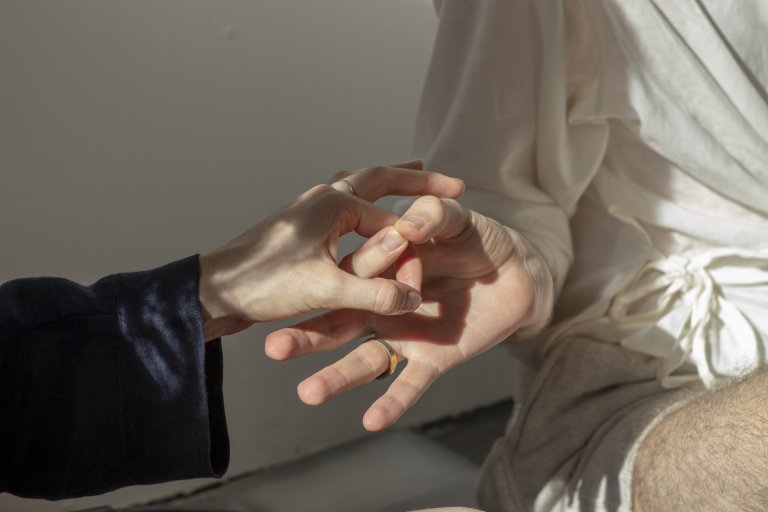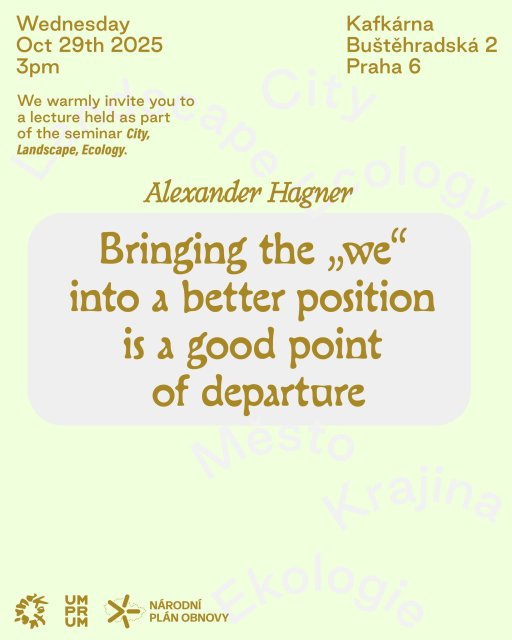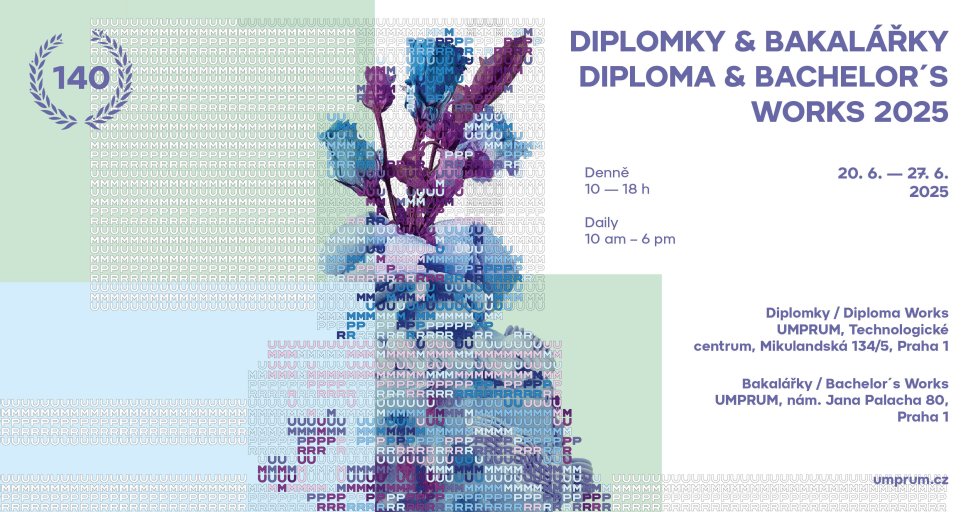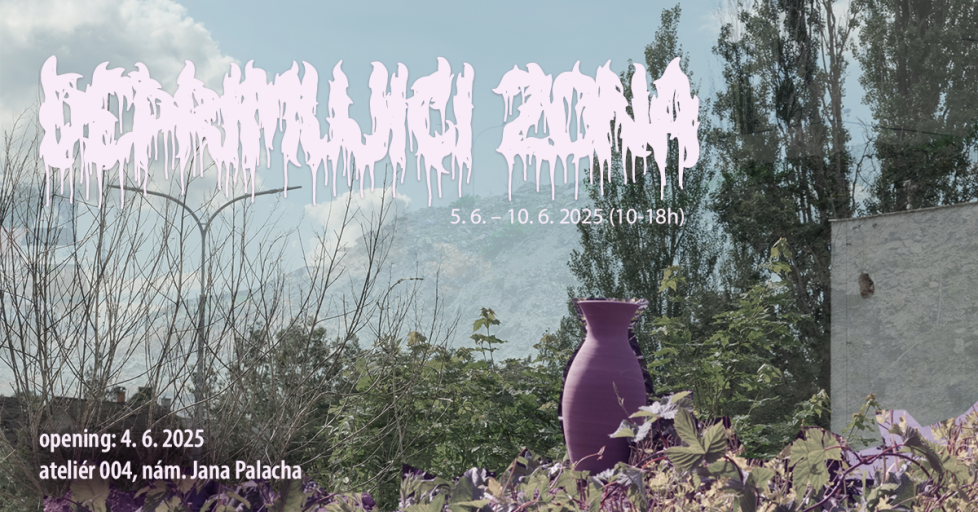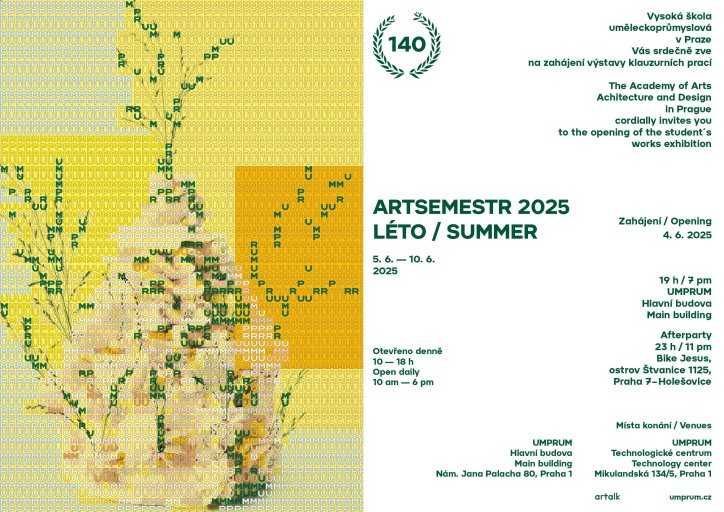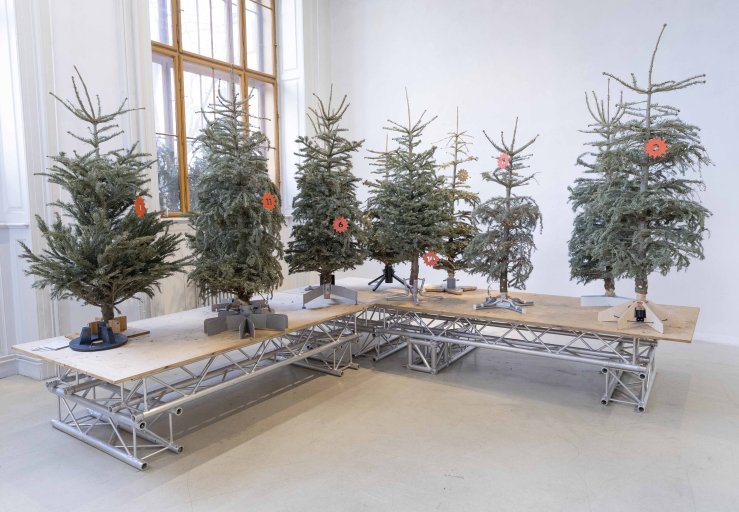Fine Arts I
Each studio of the Department of Fine Arts operates within its own focus and dynamics that is determined mainly by the needs of the students and the professional specifics of the teachers. Nevertheless, all studios of the KVU offer space for various ways of artistic expression. The particular focus of the studio of Fine Arts I is centralized around the medium of installation, sculpture, performance and ecological and environmental themes. Fine Arts I studio is interested in the co-creation of public space, the cultivation of the infrastructures of which we are part of, and specific potentials of the medium of exhibition.
We understand the studio as a community of people with a shared interest in how contemporary art can co-create, act, represent, experience and imagine the world we live/might live in. The medium of sculpture, which has historically been associated with our studio and probably still represent the closest background for most of our students, is being understood as a way to express – in a shared space and in a coherent and diverse way – our beliefs, opinions, suggestions, concepts, empathy and emotions that could change the state of affairs for the better (not only for humans, but also for other species and more-than-human entities).
Although we do not simplistically understand sculpture only as a medium, we encourage and offer training in sculptural techniques and technologies that rethink sculpture in relation to ethical production methods (such as carbon footprint, recycling and upcycling of materials, environmental friendliness and awareness etc.). Knowledge of mentioned techniques then helps us to intervene with the public space in a broader sense (not only through exhibitions and discussions, but also through other formats such as campaigns, demonstrations, concerts, caring activities, tree planting, generally through actions in the landscape or public space, but also through new ways of narrating and imagining, speculating etc.).
Teaching (training) framework of our studio is an integral part of the collective as well as individual needs and interests of the students; also, we try to adapt the teaching methods to the aforementioned focus. Each member of the studio has the freedom to express himself or herself, but we also strive for a shared statement and narrative. We observe with interest if the studio moves in a more engaged direction, responding to issues related to the climate crisis, migration, drought, the state of the land, food sovereignty, ecological grief, animal suffering, human rights violations, genocide(s) etc. At the same time, however, we emphasize individual starting points, approaches and experiences of reality as well as other (virtual) worlds. We also watch and follow parallel practices and activities from different disciplines that show the possibilities of extending artistic expression into other fields and looking for functional intersections between them.
Dominik Lang studied sculpture, installation and new media at the Academy of Fine Arts in Prague (AVU). Shortly, he also studied intermedia at UMPRUM in Prague as well as Public Space at Cooper Union NY and "Architecture Without a Roof" with Ai Wei Wei in Salzburg. Prior to UMPRUM, he worked as co-head of the studio of Visiting Artist (AVU), as a lecturer at FAMU and as an assistant to Ai Wei Wei at Fake Studio. He also held the position of curator of the Jelení Gallery at CSU. Dominik Lang’s creative practice includes residencies in Budapest, Warsaw, Rotterdam, ISCP NY, and a fellowship at the Akademie der Künste in Berlin. His solo exhibitions took place at Secession in Vienna, MUMO Melbourne, Inhotim Bello horizonte etc. He also represented the Czech Republic at the Venice Biennale and other prestigious international platforms of contemporary art. In 2021, he initiated the establishment of the Center for Arts and Ecology UMPRUM.
Amálie Bulandrová graduated in Theatre Studies and History of Art at the Faculty of Arts of Masaryk University in Brno and in Theory and History of Art at the Academy of Arts, Architecture and Design in Prague. Within the above-mentioned institutions, she is currently working as a co-head of the studio of Fine Arts I (UMPRUM) and as a PhD candidate in theatre studies (FF MU). Her research focuses on contemporary scenography and scenographics, performativity of public space and the theatricality of the medium of installation. Since 2022, she has been involved in the organization and dramaturgy of the Kafkárna / Centre for Arts and Ecology UMPRUM, and occasionally, she works as a curator and publicist in the field of visual and performing arts.
Kateřina Žák Konvalinová studied at the Academy of Fine Arts in Prague (AVU) in the years 2014-2020, mainly at the studio of Intermedia 3. She completed a semester internship at the Prague DAMU (Department of Alternative and Puppet Theater, majoring in directing and dramaturgy), and a six-month internship at the Yogyakarta Institute of Art-Seni Institut Yogyakarta in Indonesia (majoring in traditional dance). Her work can be characterized as autobiographical fiction, based on personal experience and amateurish research of interpersonal / interspecies processes and relationships, seeing the personal as political. She also focuses on the so-called small life revolutions (life changing experiences such as falling in love, first LSD experience or a bad trip, etc.), as well as on the physical and mental symptoms of our times (pain, anxiety, fatigue, depression) and on psychological-therapeutic tools such as cracks, which can be used to reassess the current situation and deconstruct the status quo.
Tereza Jindrová is an art critic and curator based in Prague. She is interested in methods of creating curatorial ‘frames’ to layer different interactions between artists, artworks and the public. Recently she is focused on the topic of rational and irrational aspects of healing, irrational beliefs and magic, and gender stereotypes in the context of artistic creativity. Currently, she works as the director of the Jindrich Chalupecky Society. Her previous experiences include working as the Fine Arts editor at A2 magazine, working for Flash Art magazine Czech and Slovak Edition, the Prague Biennale and Meetfactory – Centre of Contemporary Art in Prague. She studied History of Art at the Charles University and Theory and History of Design and New Media at the Academy of Arts, Architecture and Design in Prague. She was awarded with Věra Jirousová’s Award (2013) for art criticism for young authors.
We represent our joint engagement in the studio with the metaphor ‘the shadow of the foundation stone’. We try diligently with the students to find the already oft-defined essence of sculpture. Simultaneously, however, we contend that keeping in view the foundation stone and classical principles is not enough. Therefore we focus our attention also on its shadow, which in the development of art alters its outlines, its size, its intensity and its applications. We consider how the shadow changes with point of view and method of lighting, and knowledge of the original form of the foundation stone during its illumination is also very important.
We apply a laboratorial system of teaching, which pursues the mutual influencing of the individual structures of art. We reflect contemporary artistic and theoretical discourse, but also attempt to update and add new articulation to the list of existing sculptural approaches. We believe that the penetrability of the boundaries of individual genres and media has already been established and we value the ‘expanded field of sculpture' as a self-evident heritage of the 1970s. We therefore want to focus more on gaps in the understanding of sculpture, on exploring the possibilities of the sculpture in its widest sense and on what role it may play in contemporary life and art and what are its benefits, stereotypes and limitations for social engagement. We develop sculpture in all its forms, from the statue, object, installation and piece for public space to extra-sculptural disciplines, and in all essential technologies.
The structure of learning is based on a regular program of repeating seminars and workshops led by invited personalities from the Czech Republic and abroad, joint studio meetings, studio exhibitions and individual consultations.
ADDRESS
nám. J. Palacha 80, 116 93 Praha 1
ground floor – room 004
HEADS OF THE STUDIO
doc. MgA. Dominik Lang
Mgr. et Mgr. Amálie Bulandrová
amalie.bulandrova@umprum.cz
MgA. Kateřina Žák Konvalinová
Mgr. Tereza Jindrová (diploma projects)
SOCIAL MEDIA
Facebook
